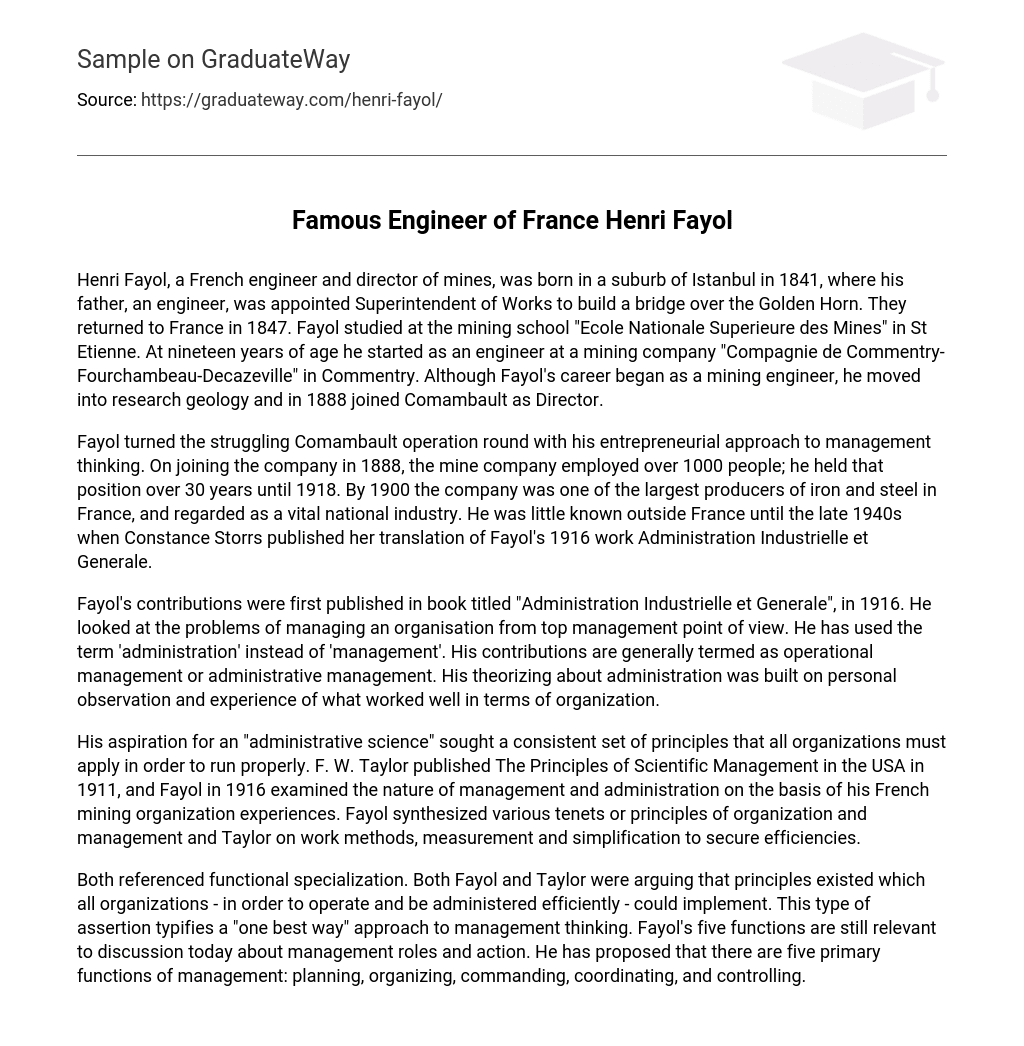Henri Fayol, a French engineer and director of mines, was born in a suburb of Istanbul in 1841, where his father, an engineer, was appointed Superintendent of Works to build a bridge over the Golden Horn. They returned to France in 1847. Fayol studied at the mining school “Ecole Nationale Superieure des Mines” in St Etienne. At nineteen years of age he started as an engineer at a mining company “Compagnie de Commentry-Fourchambeau-Decazeville” in Commentry. Although Fayol’s career began as a mining engineer, he moved into research geology and in 1888 joined Comambault as Director.
Fayol turned the struggling Comambault operation round with his entrepreneurial approach to management thinking. On joining the company in 1888, the mine company employed over 1000 people; he held that position over 30 years until 1918. By 1900 the company was one of the largest producers of iron and steel in France, and regarded as a vital national industry. He was little known outside France until the late 1940s when Constance Storrs published her translation of Fayol’s 1916 work Administration Industrielle et Generale.
Fayol’s contributions were first published in book titled “Administration Industrielle et Generale”, in 1916. He looked at the problems of managing an organisation from top management point of view. He has used the term ‘administration’ instead of ‘management’. His contributions are generally termed as operational management or administrative management. His theorizing about administration was built on personal observation and experience of what worked well in terms of organization.
His aspiration for an “administrative science” sought a consistent set of principles that all organizations must apply in order to run properly. F. W. Taylor published The Principles of Scientific Management in the USA in 1911, and Fayol in 1916 examined the nature of management and administration on the basis of his French mining organization experiences. Fayol synthesized various tenets or principles of organization and management and Taylor on work methods, measurement and simplification to secure efficiencies.
Both referenced functional specialization. Both Fayol and Taylor were arguing that principles existed which all organizations – in order to operate and be administered efficiently – could implement. This type of assertion typifies a “one best way” approach to management thinking. Fayol’s five functions are still relevant to discussion today about management roles and action. He has proposed that there are five primary functions of management: planning, organizing, commanding, coordinating, and controlling.





